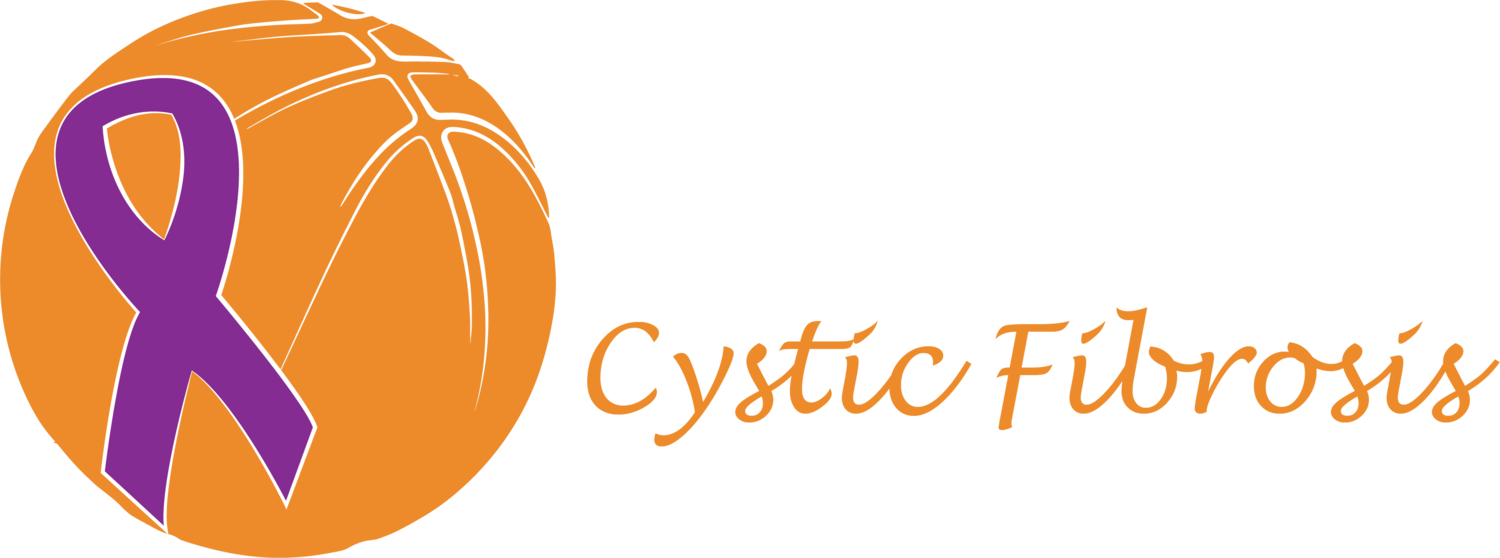What is
Cystic Fibrosis?
Source: www.cff.org
Cystic fibrosis is a progressive, genetic disease that causes persistent lung infections and limits the ability to breathe over time.
In people with CF, a defective gene causes a thick, sticky buildup of mucus in the lungs, pancreas, and other organs. In the lungs, the mucus clogs the airways and traps bacteria leading to infections, extensive lung damage, and eventually, respiratory failure. In the pancreas, the mucus prevents the release of digestive enzymes that allow the body to break down food and absorb vital nutrients.
Symptoms of
Cystic Fibrosis
People with CF can have a variety of symptoms, including:
very salty-tasting skin;
persistent coughing, at times with phlegm;
frequent lung infections;
wheezing or shortness of breath;
poor growth/weight gain in spite of a good appetite; and
frequent greasy, bulky stools or difficulty in bowel movements.
Statistics
About 1,000 new cases of cystic fibrosis are diagnosed each year.
More than 70% of patients are diagnosed by age two.
More than 50% of the CF patient population is age 18 or older.
The predicted median age of survival for a person with CF is in the mid-30s.
More information
Coaches Cure CF is a proud supporter of the Cystic Fibrosis Foundation (cff) and their research based mission.
To learn more visit www.cff.org.
About CF, Diagnosis & Genetics, What to Expect, Treatments and Research
